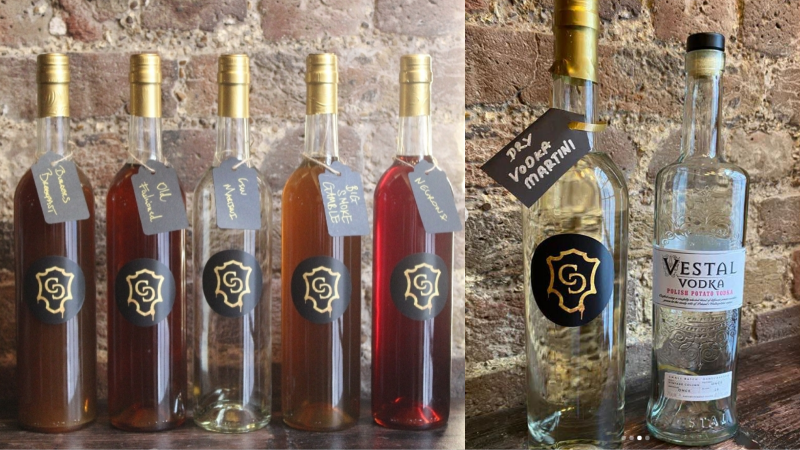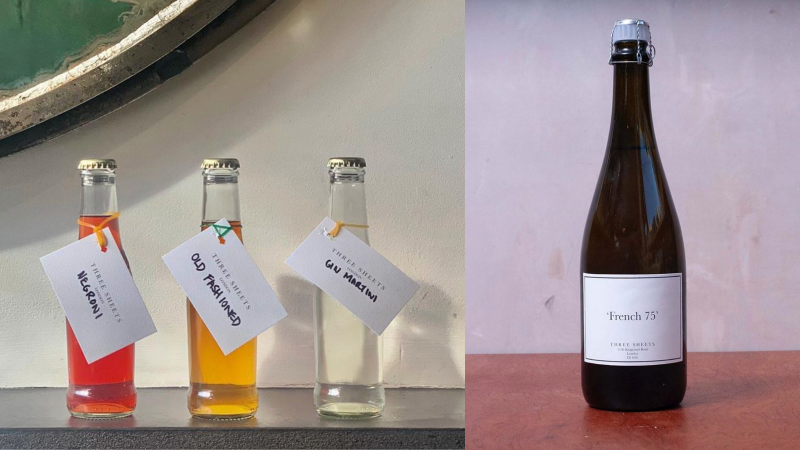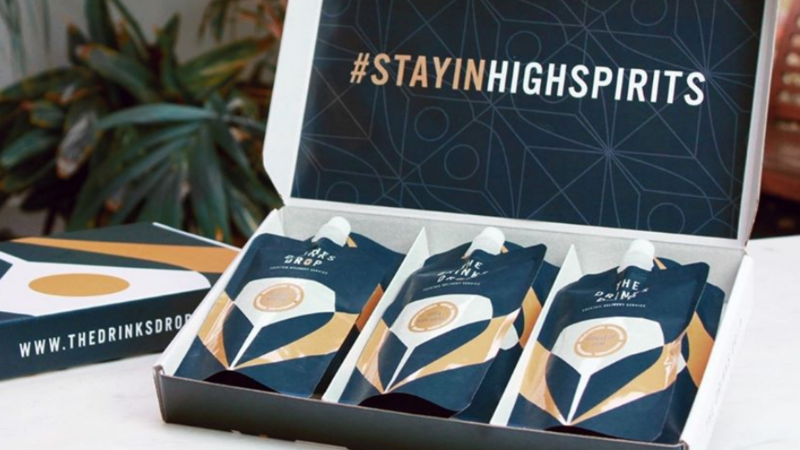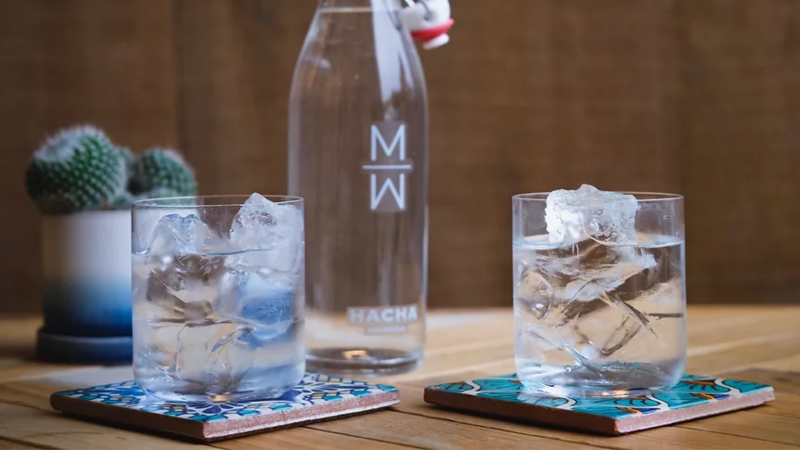Type City, bar name or keyword...
How Bottled Cocktails Are Changing The Game For Bars
No doubt about it, bottled cocktails have been a salvation in this dumpster fire of a year. Deprived of our favourite bars for months during lockdown, we basked in the glory of pouring ourselves a French 75 from Three Sheets or a Tayer + Elementary Palo Santo Gimlet.
Yep, bottled cocktails are transforming the way we drink at home – but they’re also changing the way bars do business, providing a lifeline that allows the hospitality industry to keep selling drinks no matter the hellish circumstances.
“Bottled cocktails are here to stay,” says Richard Wynne, owner of Callooh Callay in Shoreditch and Chelsea, as well as Little Bat in Islington. “If you don't realise that drinking at home is part of hospitality, then you’re missing out on a big element of business.”

BIRTH OF THE BOTTLE
Though Richard and the Callooh team launched their ready-to-drink (RTD) cocktails at the beginning of lockdown, they’d been working on the idea for a year in advance – and it turns out that many of our favourite drinking dens had bottled bevs in the pipeline long before we were sucking our booze cabinets dry in quarantine.
Cocktail legends Monica Berg and Alex Kratena, co-founders of Tayer + Elementary in Shoreditch, say that RTD cocktails were part of their business plan since they opened in May 2019, but “the whole project just got very accelerated during lockdown”. Deano Moncrieffe, owner of Dalston bar Hacha, also had his eye on bottled cocktails in the Before Times. “We actually started our analysis of bottled cocktails in December 2019, and it was always the plan to extend and expand this in 2020,” he explains. And while The Proofing Room in Shoreditch launched its Golden Highball RTD during lockdown in March, leading man Chris Tanner had been considering the concept for quite awhile. “When we opened Proofing Room, delivery was something that I wanted to implement anyway, but in opening and service you don't want to take on more than you can chew,” he says. “Lockdown gave us an opportunity to do it really well.”
MONEY MAKERS
Why have the industry’s leading lights been keen on RTD cocktails for so long? The most obvious reason is the extra cash it provides to a bar, whether or not the venue is actually open.
“The impact [of bottled cocktails] has been very positive for us as an additional revenue stream,” says Deano, whose bottled Mirror Margarita – Hacha’s banging signature serve – is its most popular delivery option. Of course, bottled cocktails were big business during lockdown. With bars and restaurants closed, takeaway alcohol orders increased by 36%. Meanwhile, speciality delivery services like Shop Cuvee and The Drinks Drop started up, giving bars a platform to sell their RTDs without having to organise delivery themselves. “We set up The Drinks Drop to make sure there was at least some money coming into the bars along with providing employment and purpose for bartenders,” explains Barrie Wilson, co-founder of The Drinks Drop.

But bottled drinks are just as important now as they were when venues were shut entirely. “It’s fairly clear this government won’t help our wonderful industry get back on their feet, and they couldn’t care less if we end up with a nation of Wetherspoons,” Barrie says.
Since curfew is currently forcing bars to close at 10pm, cutting off some of their most important trading hours, RTDs are “an opportunity to claw back some of the revenue that’s lost”, says Richard of Callooh. No need to claw, Rich – we’ll hand over our money for a bottle of Callooh Callay’s Old Fashioned any day.
SPREADING THE GOOD NEWS
The other major benefit of bottled cocktails? They’ve increased the number of people a bar can serve – by a whole damn lot. “We currently ship to 55 countries globally,” say Monica and Alex from Tayer + Elementary. “We are delighted that our brand reaches wider audiences that don't have the chance to visit our bar.”

Through national and international deliveries, bottled cocktails allow a new group of people to experience a bar’s drinks, increasing brand awareness and putting local bars on the global map. “In an ideal world we want to provide a flavour of each bar to those that could never experience it before,” says Barrie of The Drinks Drop.
“If you are in the highlands of Scotland, getting a Martini from Swift would have been a bit of a journey before. Now you can have this in your home the next day with a simple click.”
Plus, cocktail deliveries give bars important insights into the people enjoying their drinks. According to Deano, shipping out Hacha’s bottled Mirror Margarita lets the bar’s devotees sip their favourite cocktail at home “whilst simultaneously enabling [the Hacha team] to build a database and a geographic and demographic understanding of who [their] customers are”. (Cut to Deano sitting at a Hacha supercomputer, Bond villain-style, tracking Mirror Margaritas across the country. An Adele track plays softly in the background. We approve.)

And services like The Drinks Drop have helped bars hone their delivery cocktails by taking note of what sells. “Margaritas, Negronis and disco cocktails are the best sellers,” says Barrie. “It’s a great reminder to us all to stop adding in ingredients to show off, remember who the customer is. No one knows or cares what a tincture does apart from us.”
For bars like Callooh Callay, Hacha, and Tayer + Elementary, bottled cocktails are changing the game. They come with a new set of challenges – think logistics, marketing, and packaging – but they also come with much-needed, well-deserved rewards. “Now every bar has to think outside of its venue,” says Richard. “With bottled cocktails, your customer base isn’t just locals, it’s anyone who drinks spirits. You can get your cocktails to all four corners of the country. That’s almost as good as people coming into the bar themselves.”